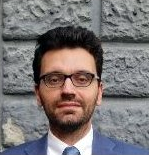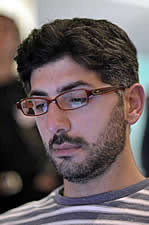Special Guests
 |
| Christian Cachin (IBM Research) Distributing Trust with Blockchains Cryptocurrencies on blockchains are worth billions today. Blockchain is promised to secure exchanges among unknown, mistrusting parties. Companies are struggling to explore new opportunities with the crypto-technology. What stands behind this hype? A blockchain is simply a public ledger for recording transactions, maintained by many nodes without central authority through a distributed cryptographic protocol. All nodes validate the information to be appended to the blockchain, and a cryptographic consensus protocol ensures that the nodes agree on a unique order in which entries are appended. This talk will explore the cryptography and consensus mechanisms for blockchains. Public blockchains and cryptocurrencies like Bitcoin or Ethereum operate in a completely decentralized way. Consortium blockchains, on the other hand, are run by an a-priori established group. The presentation will also cover Hyperledger Fabric, a modular and extensible blockchain platform that is developed open-source under the Hyperledger Project, with key contributions from IBM Research - Zurich. |
 |
| Paolo Campegiani (Bit4id) Regulation and Innovation for Digital Identity |
 |
| Fabrizio Leoni (InfoCert) Digital identity of the objects and the evolution of the PKI in the IoTs IoT is booming. There will be tens of billion devices connected to the internet by 2020 while several trillion of dollars will be spent on IoT solutions, ranging from smart metering, smart home platforms, vehicle-to-grid hubs, power plant automation, demand-response schemas. Trust in IoT is much more critical than in traditional digital transactions. Trust between objects is fundamental to ensure Identity Proof, Privacy and a clear Liability Framework. PKI Infrastructures are an established and reliable model to state person and server Identity, and recently became part of the standard in an important area, such as IOT in power production plants. Can this model be extended in a world with a different cardinality of objects? Do we need to rethink centralized and hierarchical model? Can PKI live together with distributed ledger and different encryption types in a quickly evolving and mostly deregulated scenario? We are working to depict the upcoming IoT trust models, and we think that raising questions to scientific community is a good way to start. BIO Born in Milan in 1966, married, two children. After a scientific training at the Faculty of Physics in Milan, he began his experience in the world of IT consulting as a freelancer. In the following years he was a founding member of two technology consulting firms in the Groupware and Enterprise Web Development fields. After an experience in DedaGroup as Solution Manager, he started as CTO a new company, Klever, building a strong expertise in regulated ECM solutions. After Klever acquisition by InfoCert, he become Enterprise Solutions Marketing Manager. Currently, he is Head of Product Innovation at InfoCert. |
 |
|---|
Pierangela Samarati (University of Milan) |
 |
| Ivan Visconti (University of Salerno) Delayed-Input Cryptographic Protocols This talk will illustrate the benefits of running a cryptographic protocol when the input is required only in the last round. In particular the talk will consider the use of zero-knowledge proofs for protecting private data stored in a blockchain and will overview the impact of delaying the input in such applications. BIO Ivan Visconti is an associate professor of Computer and Electrical Engineering and Applied Mathematics Department of the University of Salerno. His main research topics are Cybersecurity and Blockchain Technology. He's the scientific coordinator for University of Salerno of the H2020 European project "PRIViLEDGE" (Privacy-Enhancing Cryptography in Distributed Ledgers), that focuses on Blockchain technology. |